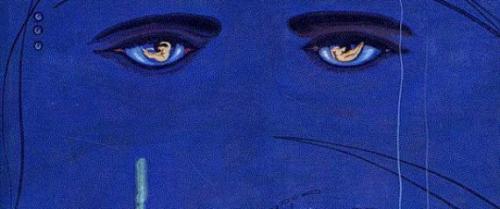The Most Highlighted Passages From Classic Books

Earlier this year, Amazon's Kindle team revealed which passages are highlighted most frequently across all of their ebooks. Unsurprisingly, lines from Suzanne Collins's The Hunger Games trilogy topped off the list of most-highlighted quotes, followed by passages from Jane Austen's Pride and Prejudice and Sir Arthur Conan Doyle's The Adventures of Sherlock Holmes.
The most-highlighted line isn't particularly poetic. From Suzanne Collins' Catching Fire, it reads: "Because sometimes things happen to people and they’re not equipped to deal with them."
And the most-highlighted books of all time? The Holy Bible, Walter Isaacson's Steve Jobs biography and, you guessed it, The Hunger Games.
The New Republic writes that if our highlighting tendencies are reflective of our literary tastes, the soul of the American reader is looking awfully bleak. But does what we choose to highlight necessarily reflect our beliefs? There's a slew of reasons to single out a section of a novel: perhaps its syntax made it noticeable, or its themes seem pop quiz-worthy.
Below are the most-highlighted passages from 13 classic novels, according to Amazon's Kindle team:
The Great Gatsby by F. Scott Fitzgerald
"Every one suspects himself of at least one of the cardinal virtues, and this is mine: I am one of the few honest people that I have ever known."
To Kill a Mockingbird by Harper Lee
"Shoot all the bluejays you want, if you can hit ’em, but remember it’s a sin to kill a mockingbird."
Lord of the Flies by William Golding
"He found himself understanding the wearisomeness of this life, where every path was an improvisation and a considerable part of one’s waking life was spent watching one’s feet."
Nineteen Eighty-Four by George Orwell
"The Ministry of Truth, which concerned itself with news, entertainment, education and the fine arts. The Ministry of Peace, which concerned itself with war. The Ministry of Love, which maintained law and order. And the Ministry of Plenty, which was responsible for economic affairs. Their names, in Newspeak: Minitrue, Minipax, Miniluv and Miniplenty."
Catch-22 by Joseph Heller
"Like Olympic medals and tennis trophies, all they signified was that the owner had done something of no benefit to anyone more capably than everyone else."
Slaughterhouse-Five by Kurt Vonnegut
from an introduction by William Rodney Allen "Vonnegut could not help looking back, despite the danger of being turned metaphorically into a pillar of salt, into an emblem of the death that comes to those who cannot let go of the past.”
One Flew Over the Cuckoos Nest by Ken Kesey
"But I remembered one thing: it wasn’t me that started acting deaf; it was people that first started acting like I was too dumb to hear or see or say anything at all.”
Death of a Salesman by Arthur Miller
"When today fails to offer the justification for hope, tomorrow becomes the only grail worth pursuing.”
Beowulf
"Hand to hand is how it will be, a life and death fight against the fiend, and he whom death bears off shall submit to the judgement of the Lord."
The Glass Menagerie by Tennessee Williams
"But since I have a poet’s weakness for symbols, I am using this character also as a symbol; he is the long-delayed but always expected something that we live for.”
Macbeth by William Shakespeare
"Fair is foul, and foul is fair. Hover through the fog and filthy air."
Jane Eyre by Charlotte Brontë
"It is far better to endure patiently a smart which nobody feels but yourself, than to commit a hasty action whose evil consequences will extend to all connected with you; and besides, the Bible bids us return good for evil.”
The Canterbury Tales by Geoffery Chaucer
from the explanatory notes by D. Laing Purves "Those poems reflected the perplexed struggle for supremacy between the two grand elements of our language, which marked the twelfth and thirteenth centuries; a struggle intimately associated with the political relations between the conquering Normans and the subjugated Anglo-Saxons."